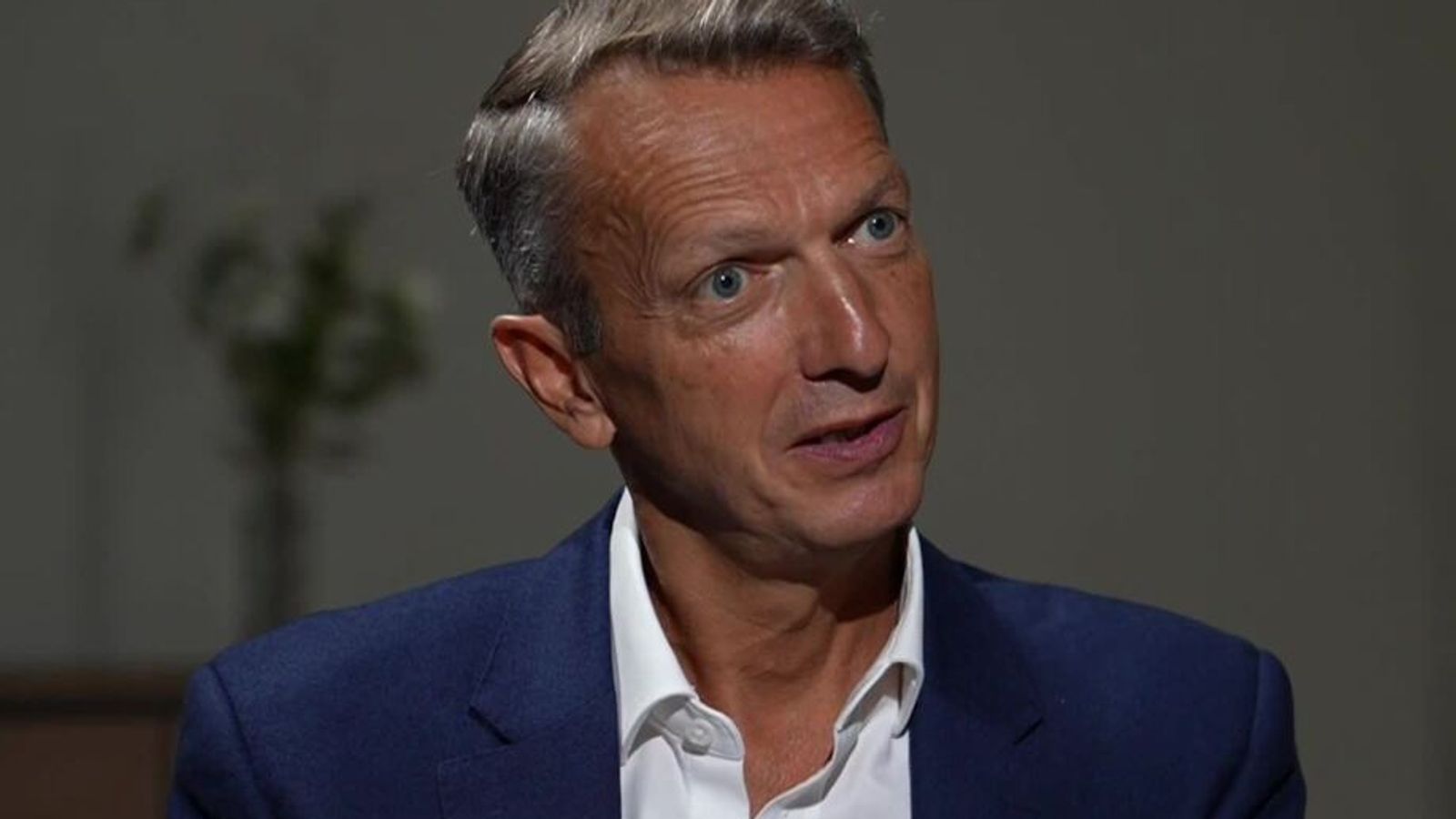The UK has been “underinvesting” in its infrastructure and the crisis surrounding concrete defects in schools and public buildings was “foreseeable”, a former Bank of England chief economist has told Sky News.
Andy Haldane told the Politics Hub with Sophy Ridge show that schools, hospitals, road, rail and digital infrastructure across the UK had all suffered from a lack of investment.
In an exclusive interview with Ridge, the economist said: “We fare poorly when it comes to the amount we save as a country, save as a nation and the amount we invest as a nation.
“And that’s the main reason why we’re seeing these problems.”
Mr Haldane was speaking to Ridge as the UK is in the grip of a crisis regarding the safety of its public buildings and the use of reinforced autoclaved aerated concrete (RAAC), which is prone to collapse after a period of time.
More than 100 schools have been told to either close or partially close their buildings as a result, creating disruption for thousands of pupils just as they prepare to go back to school after the summer holidays.
The crisis has prompted a blame game among politicians, with Labour criticising the Tories for what they believe is 13 years of under-investment, while Gillian Keegan, the education secretary, has expressed frustration at school leaders for not returning questionnaires to inform ministers about whether they are affected by the issue.
Keegan has ‘unleashed a Pandora’s box’ – politics latest
It has also re-ignited a debate about spending and the economy as the UK prepares for a general election next year.
Mr Haldane, who stepped down from the Bank in September 2021, said he wanted to see more “political ambition” from both the main parties when it came to investment.
The Labour Party has struck a cautious tone when it comes to spending in a bid to reassure voters that it can be trusted to handle the economy.
But Mr Haldane said: “There’s been under-investment in the assets of UK PLC.”
Asked whether the concrete crisis was “foreseeable”, he said: “I think it was foreseeable that if you consistently under invest then the quality of your sometimes-called capital stock – stuff we rely on for our everyday lives, the schools our kids go to, the roads that we drive on, the hospitals that we visit – unless you keep on investing in those things, it trips you up over the longer term.
“We’ve invested too little for too long.”
Mr Haldane issued a challenge to both the main parties, saying “now is the time for investment” – but that the current fiscal rules “get in the way of that”.
“They don’t recognise sufficiently the difference between spending money that gets paid out today and spending money that’s investing for tomorrow in the schools, in the hospitals, in the roads and the railways and the broadband,” he said.
“I’d much prefer, rather than fixating on measures of debt, how much we spend, to look instead at how much we invest in those assets.”
Pressed on whether Labour understood his argument or whether it too had been too “cautious”, Mr Haldane said:
“I think both sides of the aisle, I would say, could afford to look afresh at the fiscal rules that they’ve committed to, to ensure that they’re making those investments in all the stuff we’ve been discussing – which we know have a payoff into the medium term.
“Our current rules boxes into act in a short term-ist fashion and we know that that ultimately hurts growth over the medium term
“So would I prefer a bit more ambition politically on the investment side, on the fiscal side? Yes, I would. I live in hope rather than expectation, Sophy.”
Read more:
Voters prefer Rachel Reeves to Jeremy Hunt for chancellor, poll shows
Bank of England’s ‘regrettable’ mistakes fuelled inflation, its former top economist says
Giving their reaction to the interview, guests Nick Ferrari and Labour MP Dawn Butler both agreed the UK needed to invest more in its infrastructure.
Ms Butler, the Labour MP for Brent Central, said Britain is “crumbling” while journalist and broadcaster Mr Ferrari pointed to poisonous water, hospital waiting lists and high interest rates as examples of crumbling infrastructure beyond the RAAC crisis.
Mr Ferrari said Mr Haldane was “clearly the guy who could get something done” and expressed regret that he was not appointed over “clinker” Andrew Bailey as governor of the Bank of England, whom he says has failed to keep inflation down.
“I have honestly had listeners call my show and they are in tears they cannot make the payments,” Mr Ferrari said.
Ms Butler added: “It used to be that people were four pay cheques away from being homeless – now it is only one.”
